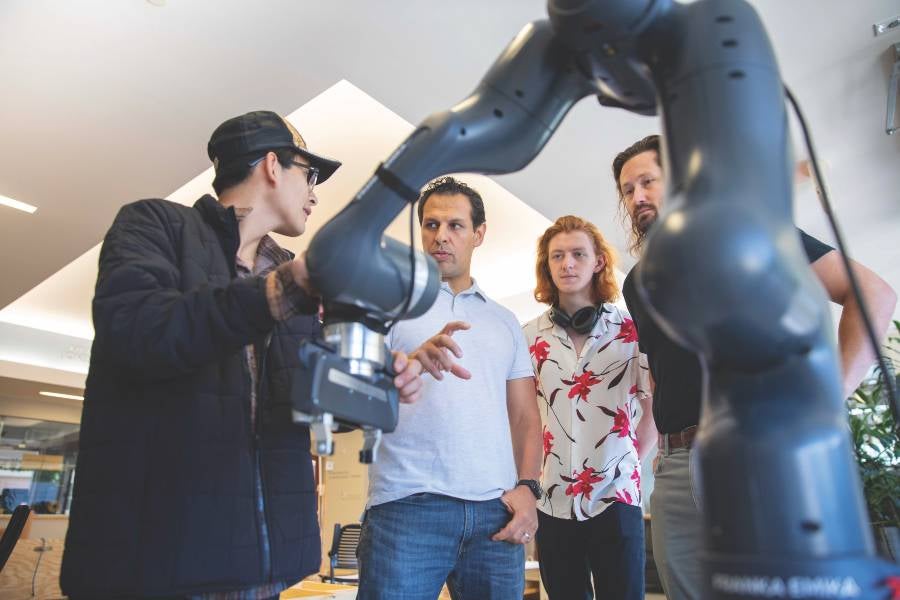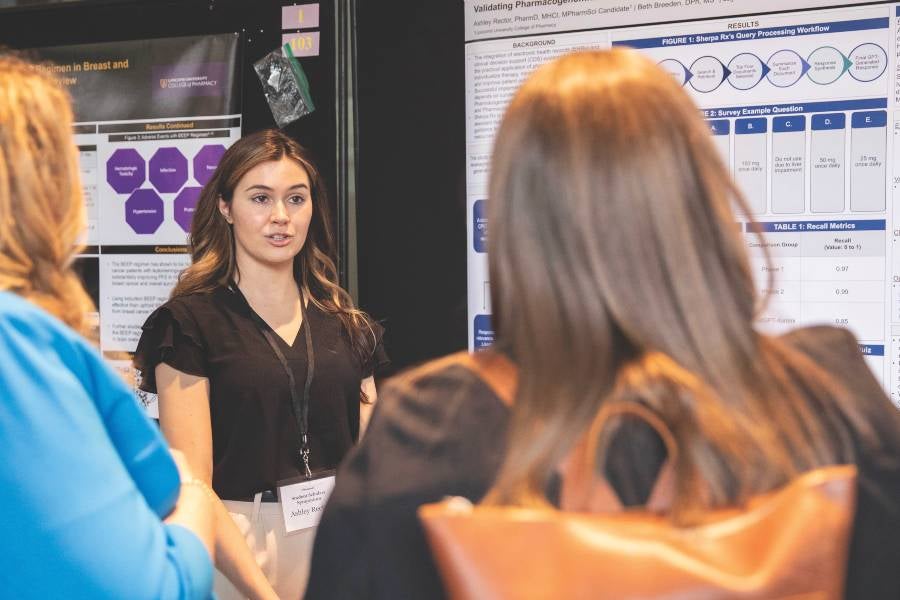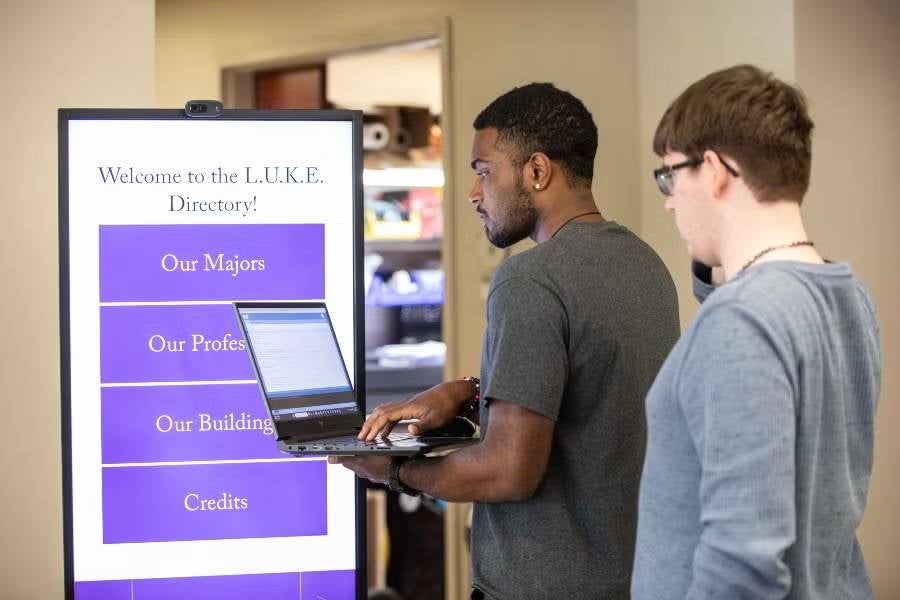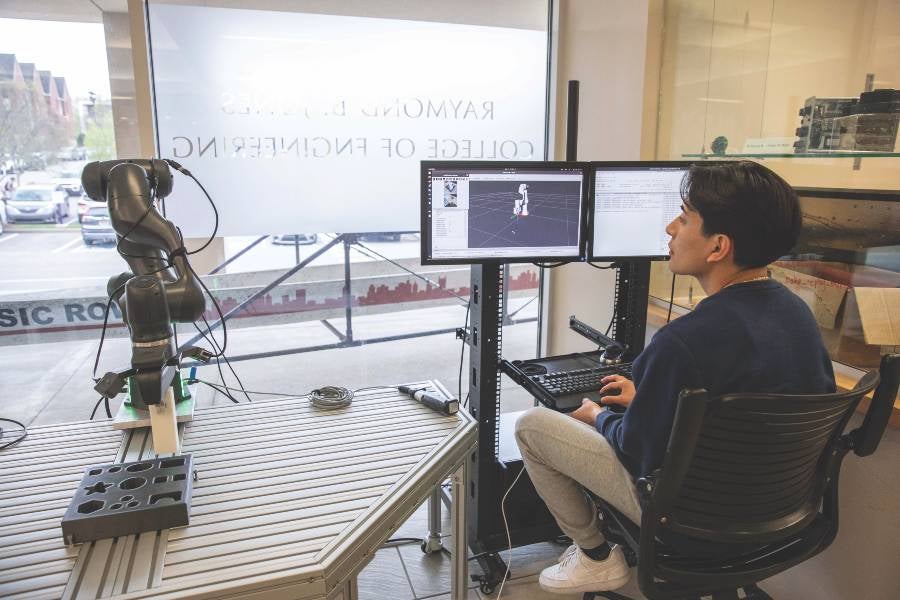Lipscomb University among the first private institutions in the nation to offer campus-wide AI access and integration
Lipscomb becomes first independent institution in the U.S. to provide robust, cutting-edge AI tools and training for all university students, faculty and staff with unique partnership with BoodleBox
Kim Chaudoin |

In a higher education landscape that is often slow to adapt, Lipscomb University is taking a bold, proactive approach to one of the most transformative technologies of the modern era — artificial intelligence (AI).

Dr. Candice McQueen
From launching Nashville’s first graduate program in applied AI to making a significant investment in campus-wide access to enterprise-level generative AI tools, Lipscomb is embracing AI as a strategic imperative, preparing students, faculty and staff for a rapidly evolving world.
“Embracing technology is not just about adopting new tools. At Lipscomb, we are integrating AI not just for innovation’s sake, but because it enhances who we are,” said Lipscomb President Candice McQueen. "It’s about preparing our community to lead and flourish in a world in which AI will continue to be an increasingly important factor.”
“That is why it is important to provide our faculty, staff and students with the tools and support they need to explore and utilize AI efficiently, responsibly and creatively,” she continued. “We are committed to building AI literacy and fluency in our community while staying true to our mission of preparing students for lives of purpose. Lipscomb’s Christ-centered mission adds a distinct lens to its approach to adopting and embracing this technology.”

Led by Juan Rojas, assistant professor of electrical and computer engineering, students use reinforcement learning, a branch of AI, to teach robots to perform complex tasks autonomously by learning from experience through trial and error.
A Proactive Approach
While many institutions are taking a wait-and-see approach, Lipscomb has been intentional in building a robust AI ecosystem. Two years ago, the university formed an AI Committee to develop a responsible integration strategy. That group now serves as an advisory body guiding policy development, training initiatives and academic integration. In summer 2025, the university released its official AI usage policy to faculty, staff and students, underscoring its commitment to responsible application with a focus on data security.
“Higher education is often seen as slow to adapt," said Provost Jennifer Shewmaker, "but our mission is to prepare students for a world that doesn’t yet fully exist. That means we cannot rely only on what has worked in the past. We must equip our students with the tools, the critical thinking, and the ethical imagination to navigate what’s next. AI isn’t a peripheral topic; it’s integral to how we help them flourish in their future vocations. At Lipscomb, we’re not just adding tools, we’re reshaping the way we teach and learn to stay true to our calling in a time of transformation.”
Emerging AI technology is creating a shift in the workplace, and Lipscomb administrators know AI fluency is a critical workforce skill.
“Workforce demand will continue to grow rapidly as we discover new possibilities for this technology,” said McQueen. “By equipping our students, faculty and staff with AI literacy and practical skills, we are preparing them to thrive in a world where these technologies are integral to every industry. AI is reimagining how we deliver education, enhance efficiency and prepare students for a workforce that is being transformed before our eyes.”

Steve Nordstrom
Leading in Graduate Education
In 2024, Lipscomb launched Nashville’s first graduate degree and certificate program in applied artificial intelligence. The program, directed by Steve Nordstrom, associate dean of the School of Computing, is designed to meet a growing demand for AI expertise across sectors.
“This program was created with accessibility and workforce relevance in mind,” said Nordstrom. “You don’t need a computer science background. We’re equipping professionals in health care, business, education and just about any discipline imaginable to understand and apply AI effectively in their industries.”
Courses are delivered in flexible formats—including online, hybrid and in-person—to accommodate the needs of working professionals. The program may be completed in as little as 18 months. “Lipscomb’s AI program bridges academia and industry and serves as a catalyst for innovation in the Nashville market and beyond,” added Nordstrom.

College of Pharmacy student Ashley Rector (’25) conducted research with SherpaRx, a startup developing an AI-driven digital platform for personalized medicine.
Integration Across the Classroom and Campus
The Lipscomb community is enthusiastically diving into the AI era. Last year, a group of “super users” piloted AI tools, and about 200 faculty members have already participated in AI training. This August, all faculty and staff will receive comprehensive AI training, ensuring the entire community is equipped to leverage these technologies.

Sarah Gibson
To help shepherd the integration of AI into the academic arena, Lipscomb became one of the first universities in the country to appoint a faculty fellow for AI. An early adopter and champion of AI, Sarah Gibson, director of Lipscomb’s School of Communication, was appointed to fill this unique role to help her peers embrace using the technology in their disciplines. Gibson has led AI workshops, collaborated with departments to redesign curriculum and encouraged a culture of experimentation.
“Our faculty are thinking about how AI integration and human-AI partnerships can support student success and deepen our connection with students,” said Gibson. “We're not replacing the human touch. Together, we're discovering how responsible AI use can create time for what matters most: meaningful conversations, personalized mentoring, student growth, and learning breakthroughs. Our approach is about using AI to enhance the very human art of teaching.”
Lipscomb is also utilizing AI for academic innovation. During the 2024-25 academic year, faculty utilized AI in the classroom in creative ways. Recent research and scholarly work tapping into AI technology include:
- Reinforcement learning for intelligent robots. Led by Juan Rojas, assistant professor of electrical and computer engineering, students use reinforcement learning, a branch of AI, to teach robots to perform complex tasks autonomously by learning from experience through trial and error. The goal is to make robots learn faster and more efficiently, enabling them to perform complex tasks autonomously in dynamic environments such as manufacturing, surgery and human interaction. Students work with the Franka Research Robot and Baxter humanoid robot to develop and test RL algorithms. Read more.
- AI-enhanced poverty simulation game. In collaboration with the nonprofit Ella’s House, students developed a simulation game that immerses players in the challenges faced by expectant and parenting students. Graduate students in Lipscomb’s Applied AI master’s program contributed by developing an AI-powered virtual counselor that could interact with players and offer guidance, enhancing the realism and educational value of the game. Read more.
- AI in pharmacogenomics - SherpaRx platform evaluation. College of Pharmacy student Ashley Rector (’25) conducted research with SherpaRx, a startup developing an AI-driven digital platform for personalized medicine. She evaluated the platform’s ability to retrieve and present pharmacogenomic data using retrieval-augmented generation (RAG). Her research compared SherpaRx’s AI responses to other models and found it superior in accuracy and clarity. Read more.

Justin T. Alexander, a senior software engineering major, developed L.U.K.E. (Lipscomb University Kiosk Experience), an interactive touchscreen kiosk that provides campus maps, trivia and information.
- Powered campus kiosk. Justin T. Alexander, a senior software engineering major, developed L.U.K.E. (Lipscomb University Kiosk Experience), an interactive touchscreen kiosk that provides campus maps, trivia and information. Applied AI students developed an AI-based guide agent using prompt engineering and publicly available campus data to answer user questions more effectively than traditional hard-coded systems. Read more.
- AI companion for neurodiverse support. In the School of Communication’s “Communication Law and Ethics” course, senior Lorelai Kline applied AI tools to create educational bots, including tutor bots for communication law and Spanish. Building on these skills, Kline developed a bot named "Morgan," a sophisticated AI companion designed to assist her friend Hannah navigate epilepsy, autism and social situations. “Morgan” leverages AI to explain social constructs through Hannah’s special interests, recognize warning signs of epileptic seizures, provide step-by-step guidance during medical events and offer biblical analogies to clarify complex concepts. “Morgan” has become Hannah’s digital companion, available when human support isn’t present. Read more.
Administrative operations are also leveraging AI technology. This fall, the Office of Advancement will add a Virtual Engagement Officer (VEO) to the team. The VEO is a digital, AI-powered role that focuses on building and maintaining relationships with various stakeholders, including donors, alumni and community members, through online channels, freeing up other development officers to devote more time to other duties.
Inaugural Chief Innovation Officer Todd McCullough emphasized the broader impact of strategically incorporating the technology at all levels of the university.
“AI is not just a tool. It’s a catalyst for innovation in higher education,” he explained. “At Lipscomb, we’re leveraging AI to streamline operations, enhance learning experiences and drive institutional effectiveness. With so many pieces already working together, Lipscomb University is not just keeping pace with technological change; it is setting a new standard for how higher education can embrace AI to empower its community and shape the future. It is change for the better by design.”

Engineering students use reinforcement learning, a branch of AI, to teach robots to perform complex tasks autonomously by learning from experience through trial and error.
Campus-Wide Access to Cutting-Edge Tools
This fall, Lipscomb is making another significant leap by providing all faculty, staff and students with access to enterprise-level AI tools through a campus-wide integration of BoodleBox, the leading collaborative AI platform for higher education.
“Lipscomb is pioneering the future of higher education by providing campus-wide AI access,” said France Hoang, co-founder and CEO of BoodleBox. “Their bold vision sets a new standard for preparing graduates to thrive in an AI-driven world.”
Lipscomb is the first private, faith-based university in the nation to implement BoodleBox at this scale, offering unlimited access to industry-leading models like ChatGPT, Claude, Gemini and Perplexity. In addition, the university also made a significant investment in Grammarly Business for all students, faculty and staff.
“Integrating BoodleBox and other tools such as Grammarly into our academic environment will transform how we teach, learn and conduct research,” said Shewmaker. “Our faculty and students will have access to cutting-edge tools that foster collaboration, creativity and deeper learning, all within a framework that upholds our values and academic integrity. Faculty can streamline course development, personalize feedback and enhance research. Students can build AI fluency, strengthen collaboration skills and increase their digital literacy.”
In addition to offering a robust selection of AI tools, an important factor in the university’s adoption of the BoodleBox platform is its top-level data security and FERPA compliance among other considerations.
“This partnership is a game-changer for our campus technology ecosystem,” said Brett Hinson, vice president of information technology and CIO. “By providing secure, centralized access to the best AI tools available, we have the potential to greatly enhance efficiencies and productivity, protect our data and ensure that every member of our community can confidently engage with AI in their work, in the classroom and in their studies.”
As Lipscomb University ushers in a new era of AI-driven education, its commitment to innovation and student success positions the institution at the forefront of higher education’s technological transformation. With campus-wide access to advanced AI tools and a focus on responsible integration, Lipscomb is preparing its community not just for today’s challenges, but for the opportunities of tomorrow.